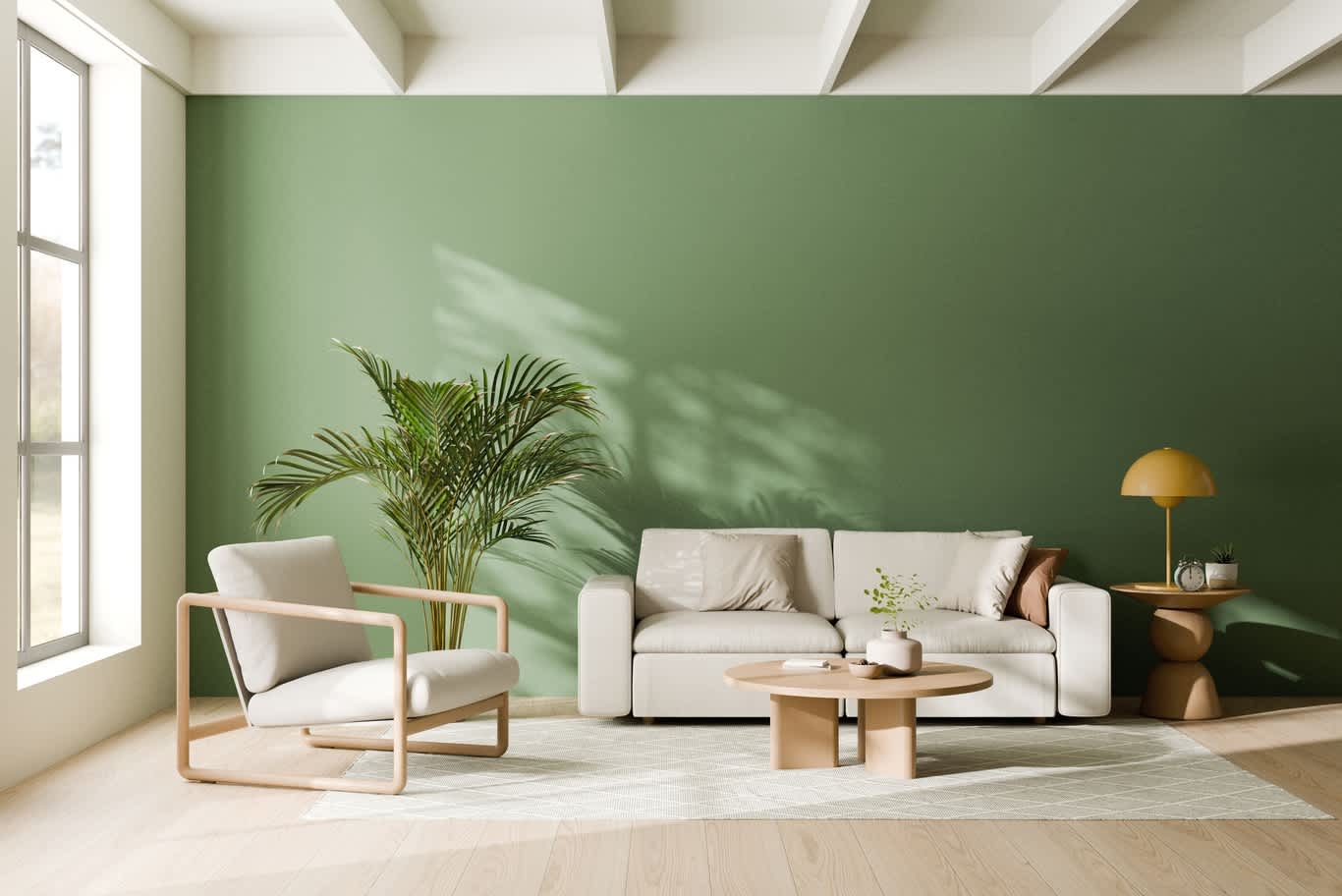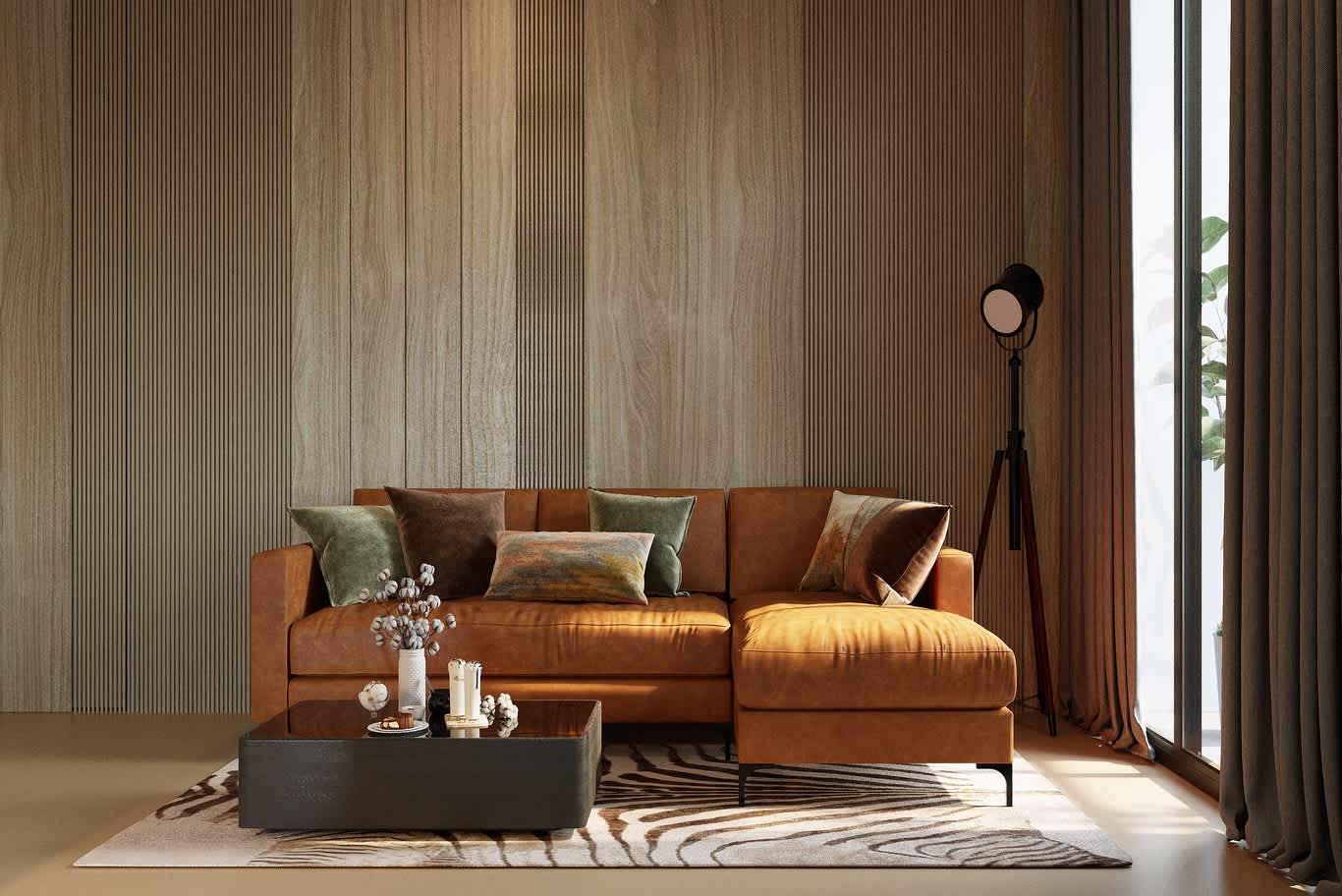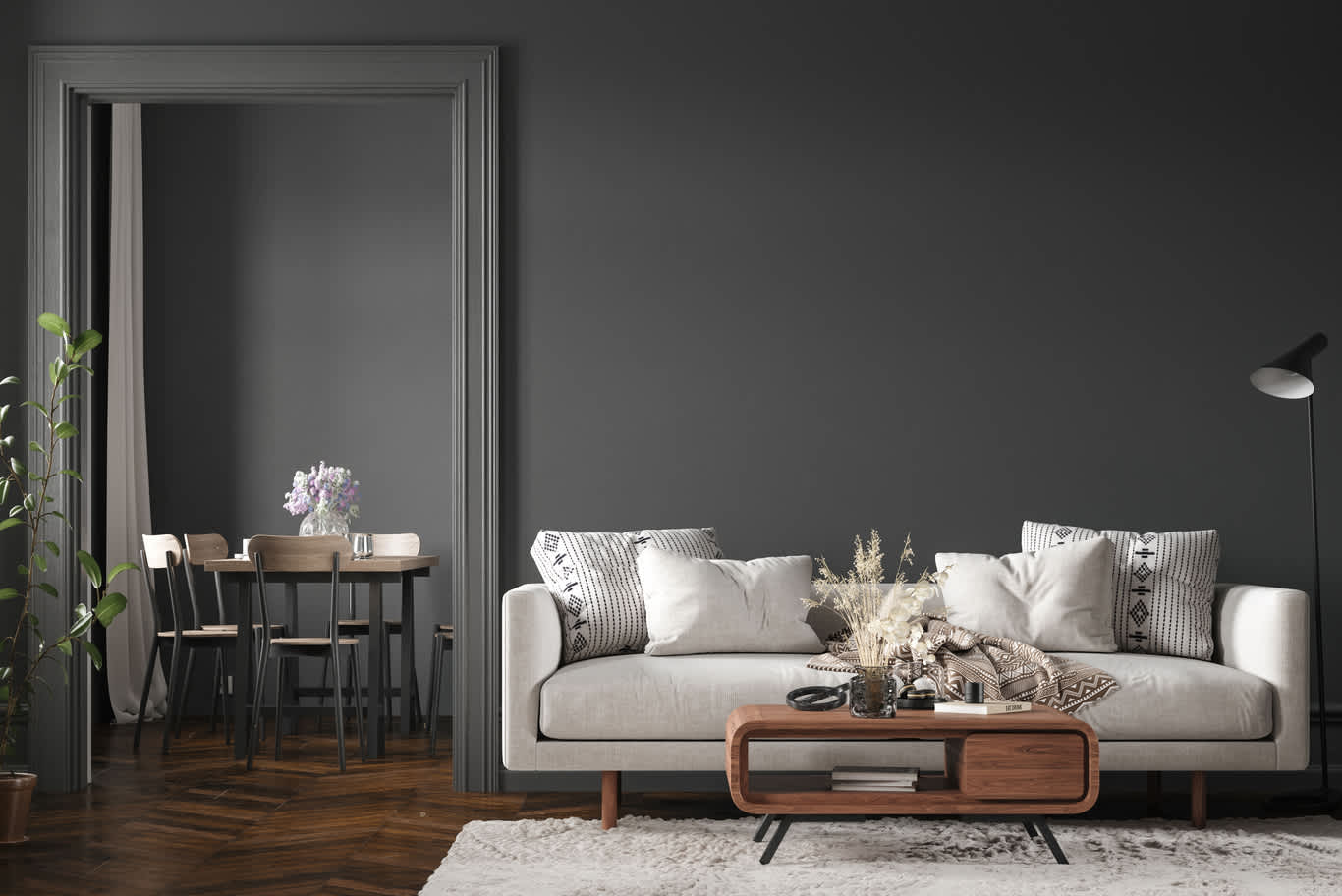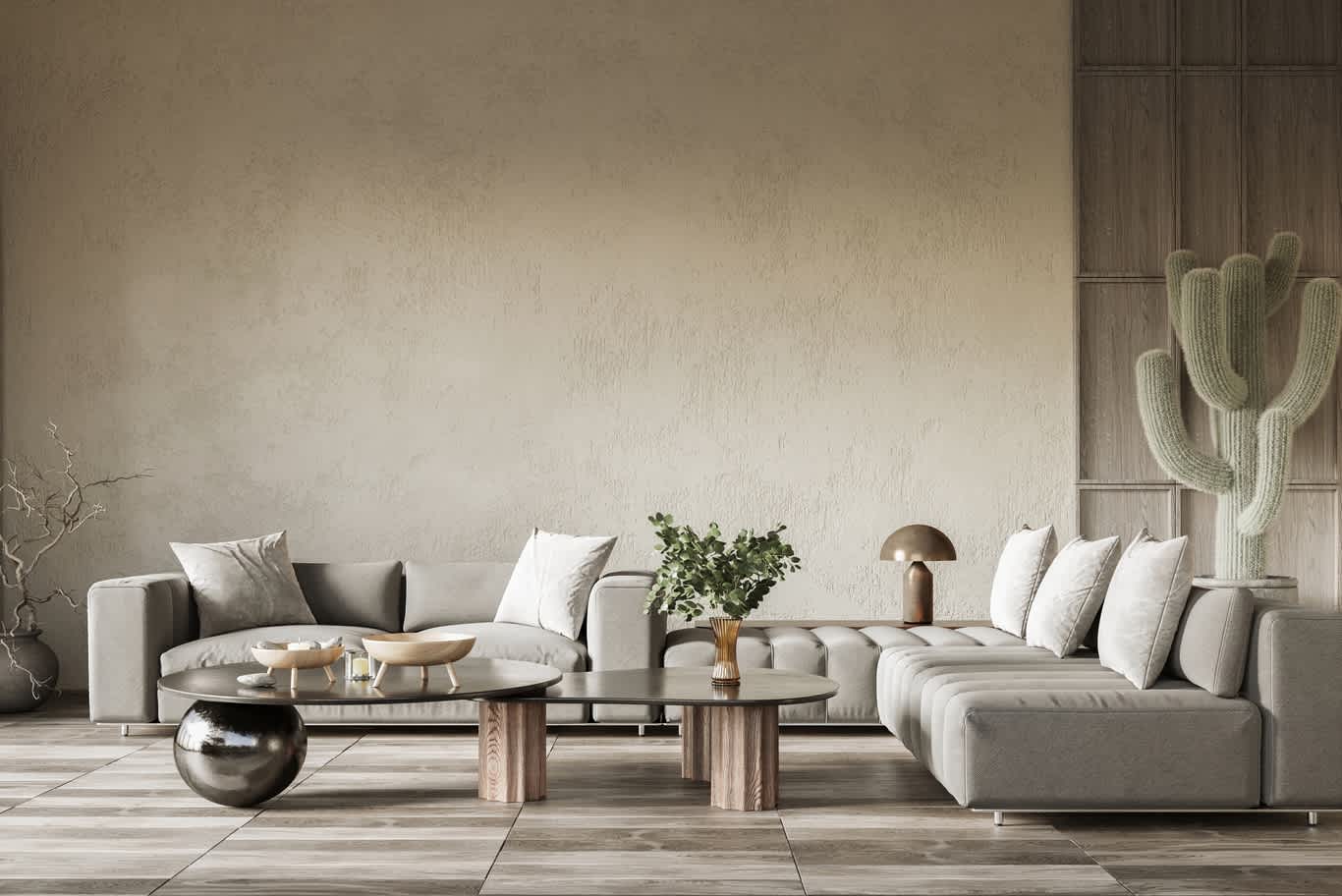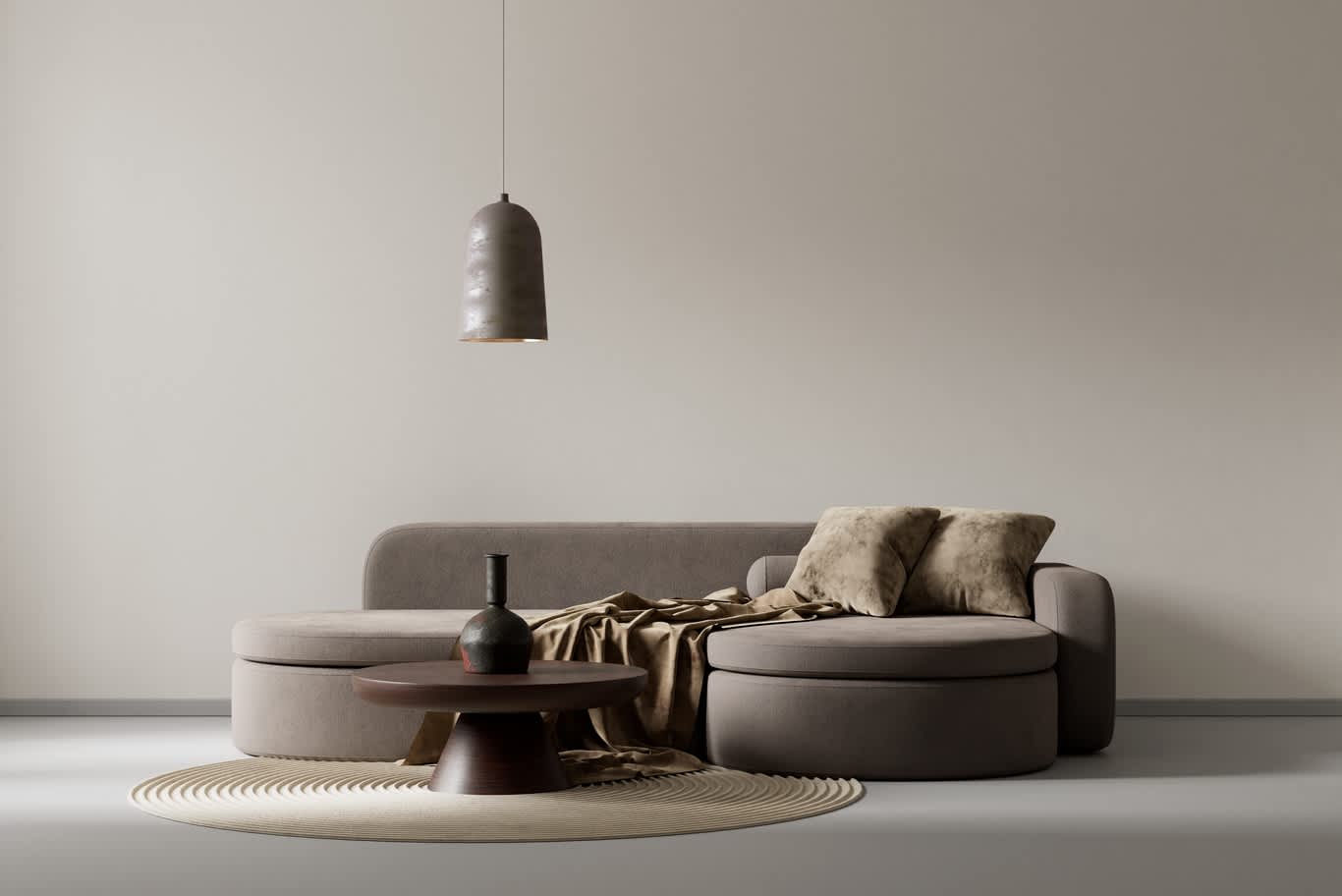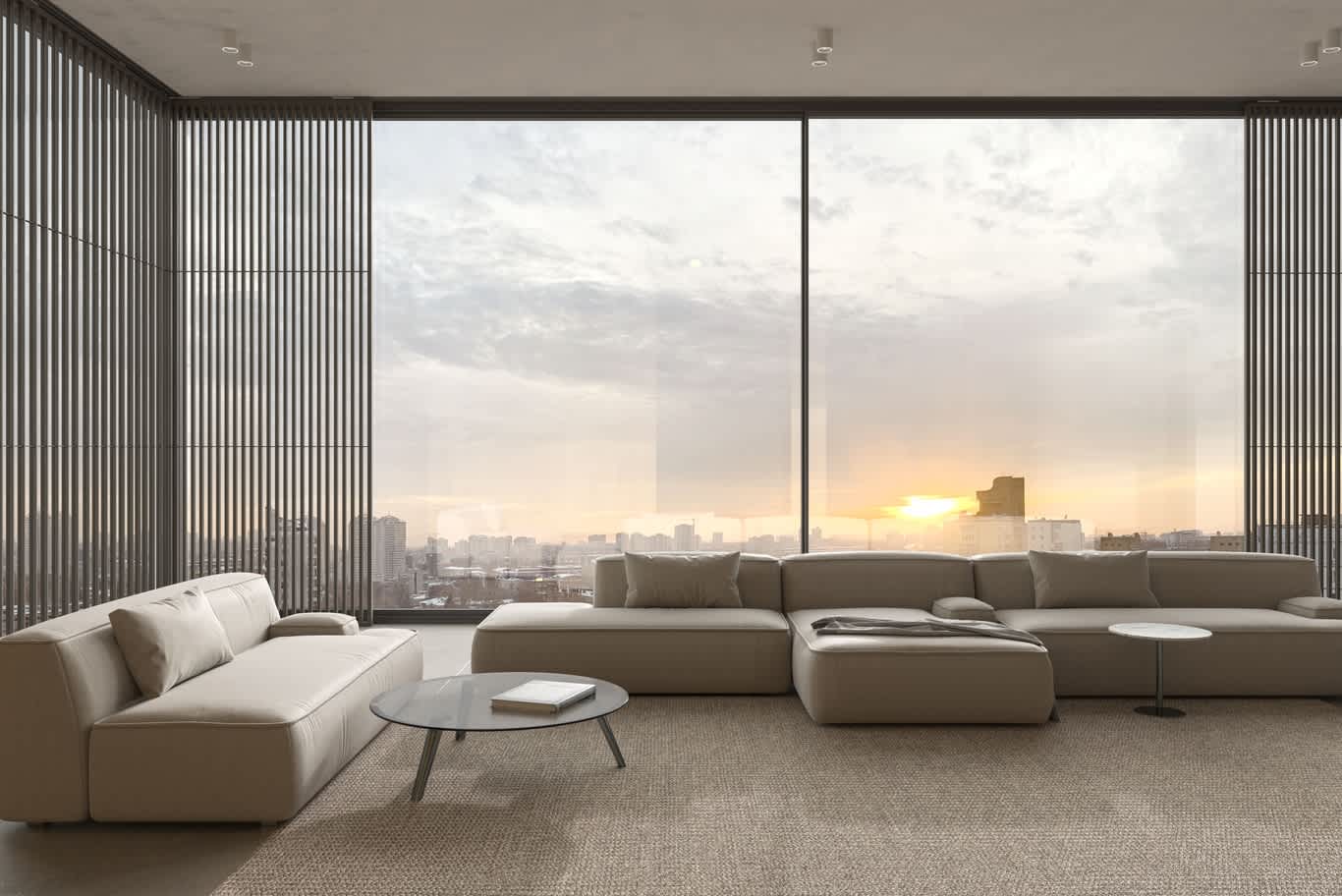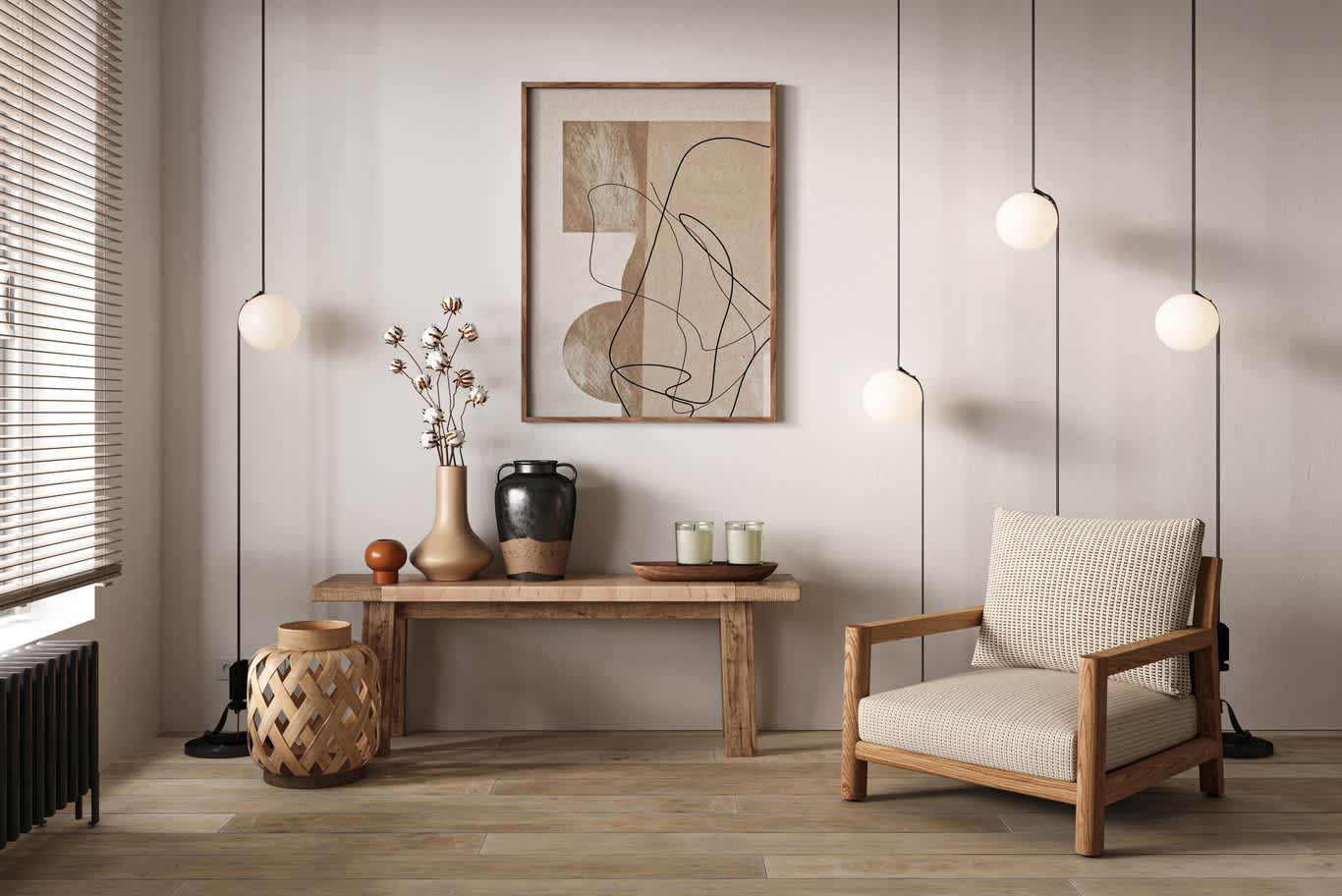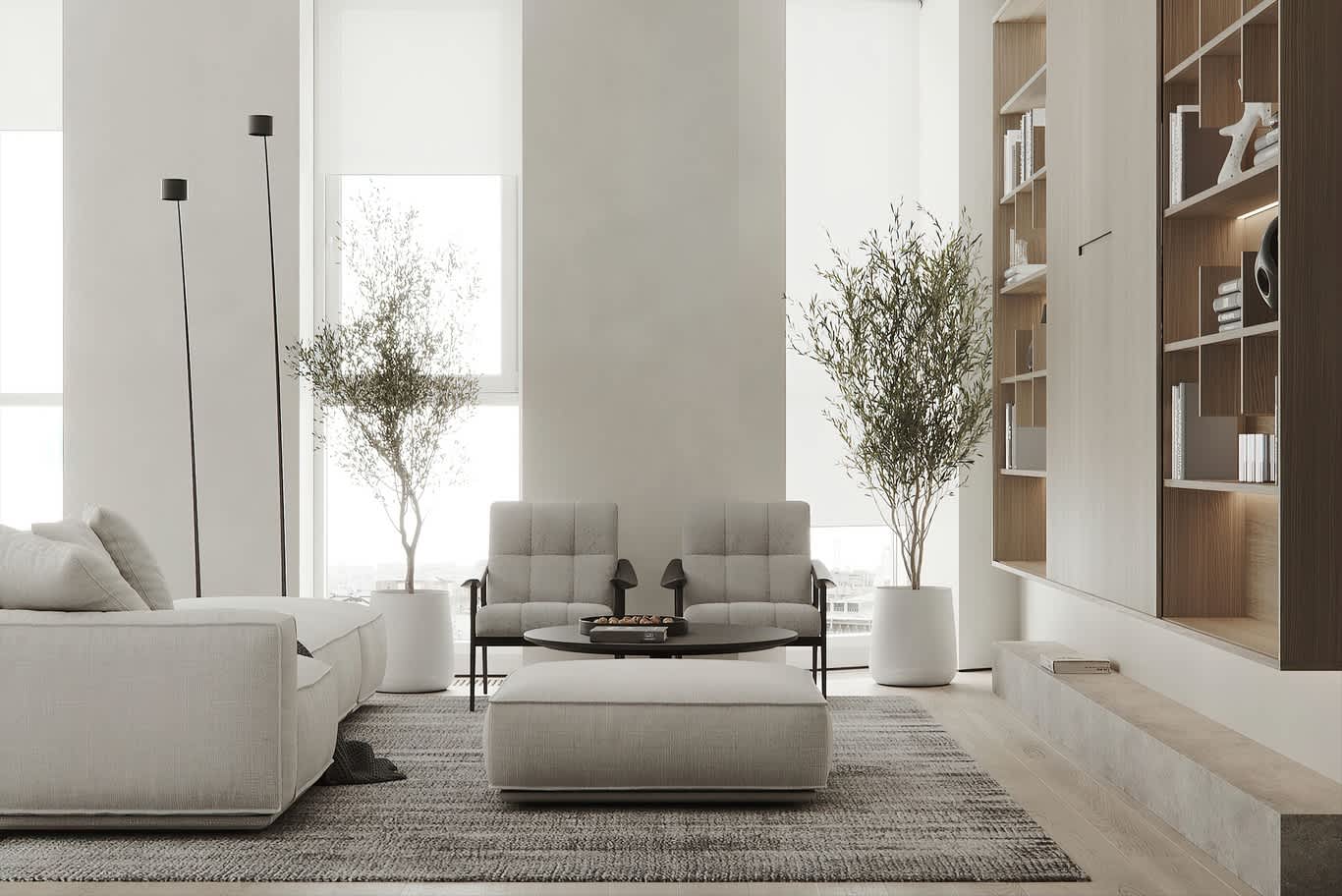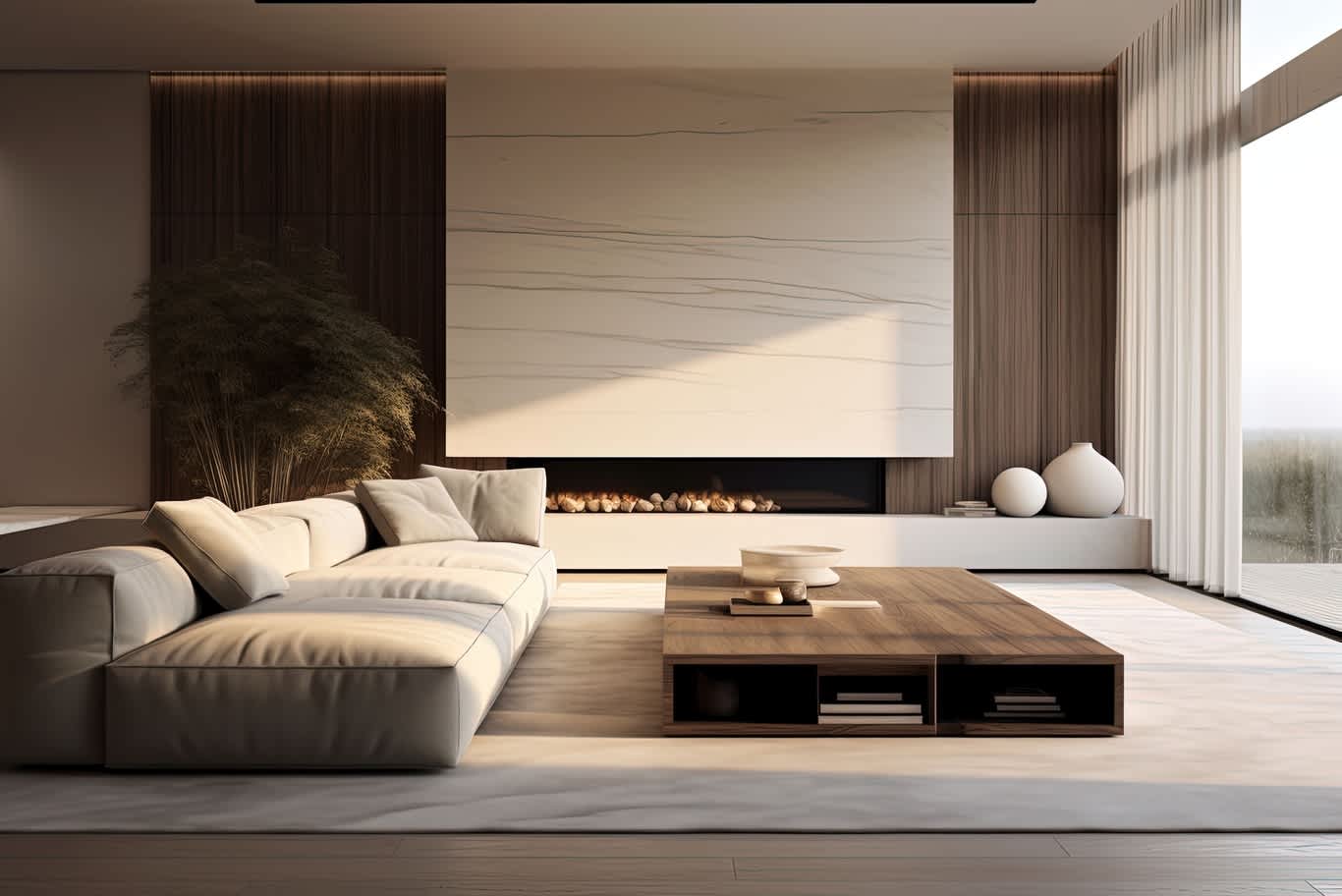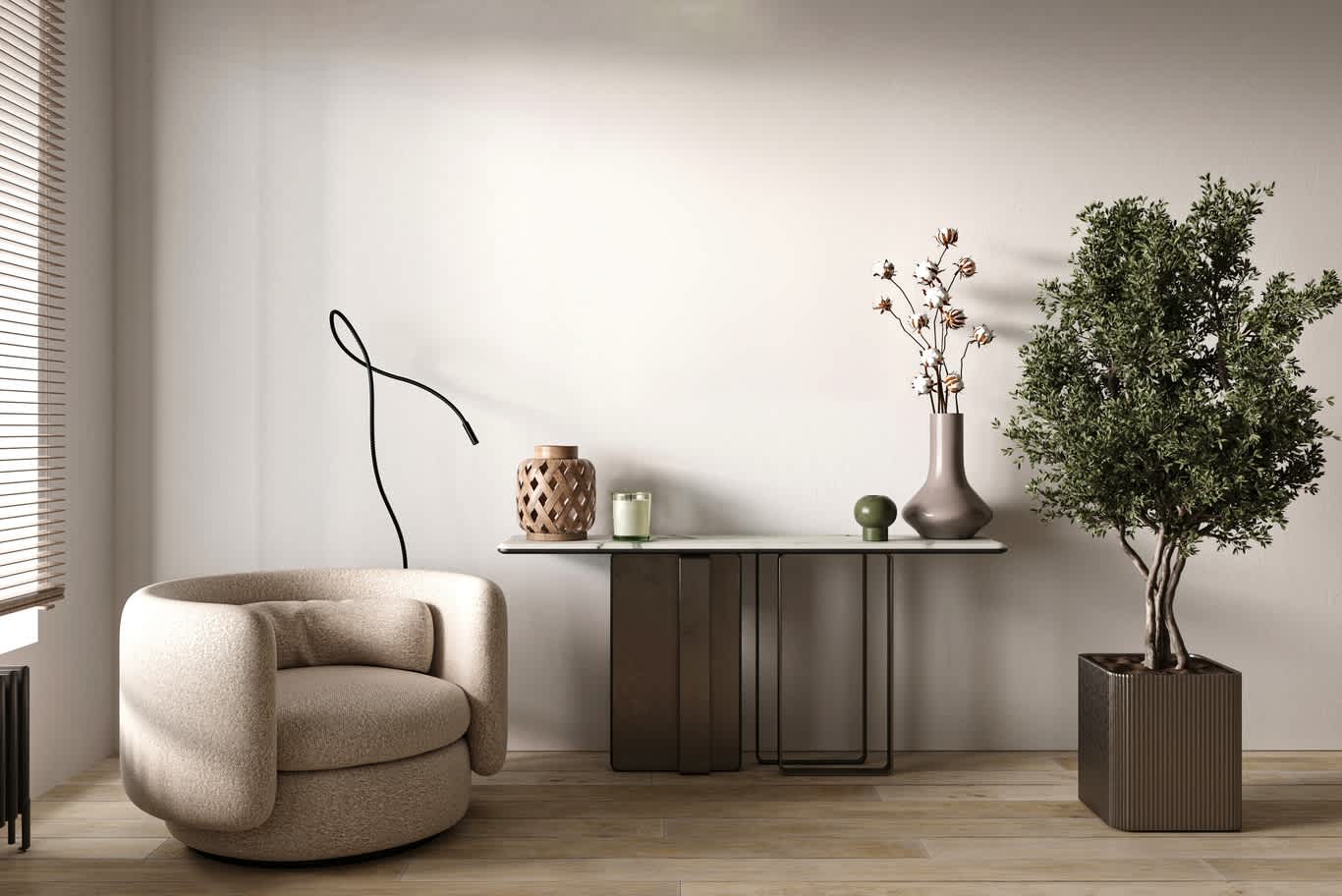Home Page | Blog | Simple Ways To Change Interior Design Of Your Home
Simple Ways To Change Interior Design Of Your Home
7/17/2025
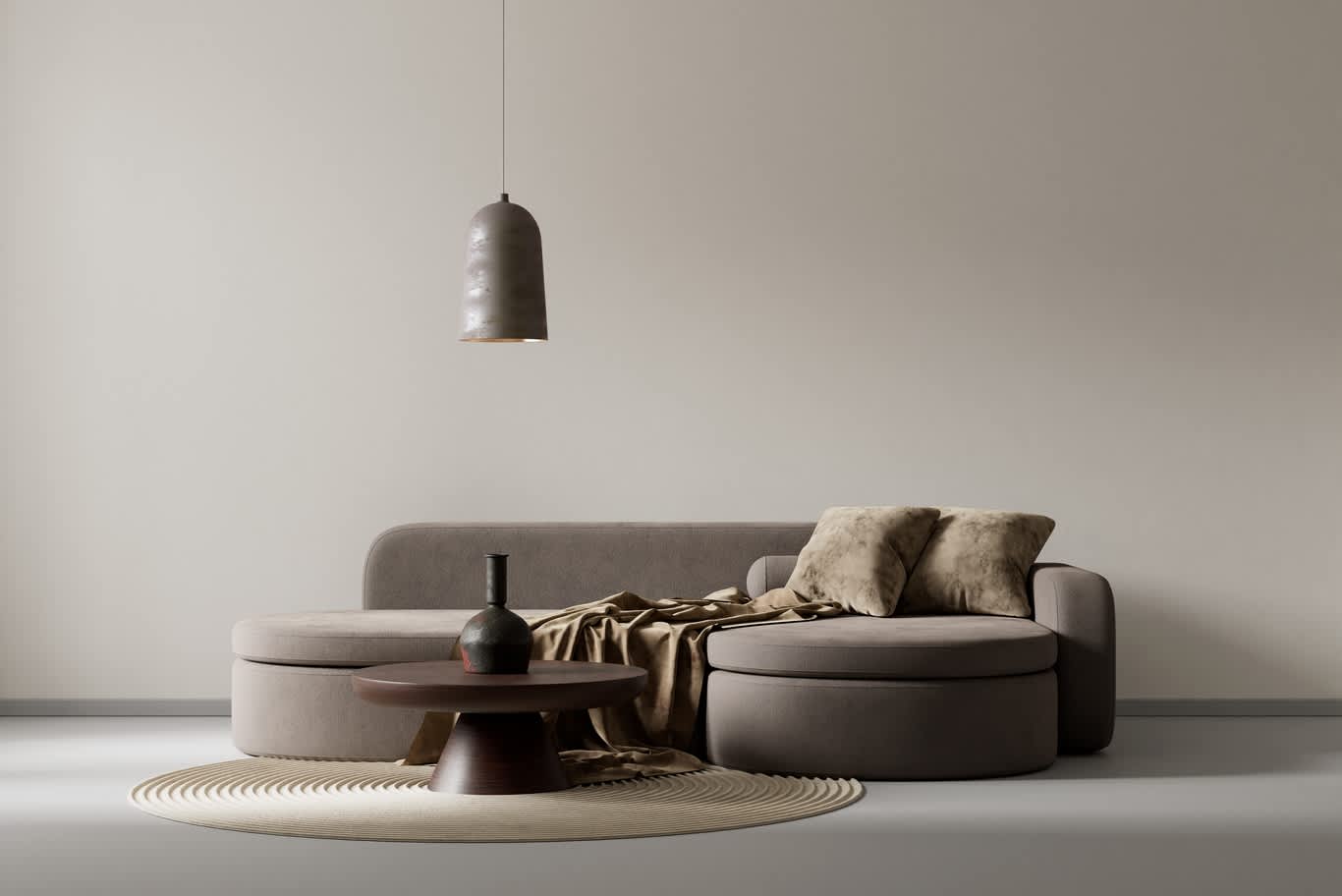
A home doesn’t need an overhaul to feel entirely different. Familiar environments can be reimagined using less common techniques that go beyond the obvious. The following suggestions offer a new angle on common problems, using creativity rather than cost as the core strategy.
1- Wall Shifts You Might Not Expect
Painted Ceiling Concept
Most people focus on the walls, but the ceiling—often overlooked—can define the room's energy. A soft blush tone in a bedroom ceiling creates a feeling of calm when lying down, while navy or forest green above a dining table invites intimacy. This trick visually lowers the ceiling and creates a sense of enclosure.
Reverse Accent Technique
Instead of adding a bold wall, try leaving one unpainted when the others are colored. This minimalist reverse-accent wall gives the eye a place to rest and can highlight architectural elements like windows or doors naturally.
Archway Illusion
Use paint to fake an arch or portal between rooms. A circular or curved color application can simulate depth, creating a custom feature that breaks up rectangular monotony.
Tactile Walls
Apply linen, cork, or wood veneer to a section of wall, particularly behind a bed or desk. This builds texture without overloading the space visually.
2- Furniture Adjustments with Psychological Impact
Offset Symmetry
Traditional layouts favor balance. Instead, arrange the main furniture slightly off-center or closer to corners. This draws the eye in unconventional ways and makes the space feel curated rather than staged. For example, angling a bed away from the wall rather than flush against it gives a boutique hotel-like intimacy.
Height Play
Use items of varied heights to guide visual movement. Place a tall floor lamp next to a low coffee table. This change alters the room's perceived scale and adds architectural interest—even in rooms without structural features.
Edge Seating
Place a bench, pouf, or sculptural chair near thresholds or entrances. These “edge zones” soften transitions between rooms and offer unexpected sitting spots.
Invisible Anchoring
Use rug orientation and lighting placement to anchor zones in open layouts. The furniture doesn’t need to be clustered tightly to feel connected.
Explore more original design insights
3- Light Beyond Brightness
Directional Layers
Light isn’t just about visibility—it shapes emotion. Instead of general ceiling lights, try directing floor lamps upward to bounce light off the ceiling. This creates a soft canopy effect. Placing wall sconces closer to the floor rather than eye level brings unexpected ambiance for evening relaxation.
Reflective Surfaces
Glass, mirror, and metallic objects amplify available light. Use mirrored trays or glossy ceramics in dark corners to scatter illumination without changing fixtures.
Lighting Rhythms
Set up a lighting sequence across the day. Daylight bulbs in the morning, warm bulbs post-sunset. Timed outlets can create effortless lighting rituals.
4- Soft Furnishings that Influence Perception
Unexpected Rug Placement
Rugs are typically centered under tables or seating. Instead, try layering two rugs at an angle, or placing a narrow runner at the side of a bed. This shifts focus and can redefine movement patterns within a room.
Disruption through Textiles
Combine unlikely textures—linen with velvet, jute with silk—to spark interest. It’s not about matching, but rather balancing contrast in a controlled way.
Weighted Fabrics
Heavier curtains or wool blankets bring a sense of stillness. Their weight psychologically grounds the space, particularly in windy or high-rise locations.
5- Art and Object Strategies That Break Monotony
Ceiling-Hung Art
Hang lightweight framed pieces from the ceiling with wire or chains for a floating effect. This creates a gallery-like curiosity and makes vertical space more interactive. Best suited above stairwells or hallway corners.
Objects as Dividers
Instead of shelves or screens, use a series of vases, plants, or sculptures in a row to visually divide a room without closing it off. This offers light filtration and structure simultaneously.
Gallery Swap System
Create a "rotation rack" in storage—seasonally switch out art or framed photos. Rooms then evolve throughout the year without buying anything new.
Unframed Concepts
Display tapestries, oversized pages, or architectural drawings without frames. Use clips, dowels, or even hangers for raw presentation that disrupts typical art styles.
6- Plant Placement That Changes Energy Flow
Microclimates
Each corner of your home has a different light condition. Group plants based on their preferences—cacti in a bright entry, humidity-lovers like ferns near the bathroom. This creates mini-zones with distinct characters.
Hanging Forest Effect
Install ceiling hooks near windows and suspend different types of trailing plants at staggered heights. The cascading leaves form a natural curtain and provide privacy without blocking sunlight.
Botanical Sculptures
Shape tall plants like dracaena or ficus to create plant “silhouettes.” When backlit, they cast striking shapes on walls and ceilings.
7- Hidden and Clever Storage
Disguised Zones
Use wall-mounted kitchen rails not just for utensils but to hold lightweight baskets with plants, spice jars, or napkins. This turns storage into an aesthetic feature. Try the same concept in bathrooms for towels or candles.
Learn about different types of décor
Fold-Down Surfaces
Use foldable wall-mounted desks, tables, or ironing boards. These modern fold-outs can be as decorative as they are space-saving.
Book Spine Color Stories
Group books by cover shade or theme. Treat your bookshelf like a color block artwork.
8- Emotional Cues in Decoration
Fragrance Memory Placement
Scent has the strongest link to memory. Place different fragrances in strategic areas to condition emotional responses—lavender near the bed, citrus in the hallway, woody tones in the study. This trains the mind to enter specific moods through sensory anchors.
Objects with Purpose
Instead of purely decorative items, use conversation starters—items with a story. A handmade bowl, an antique key, or travel memorabilia speaks more than showroom accessories.
Ambient Sound
Wind chimes in an entryway, white noise machines in bedrooms, or subtle nature sounds in reading corners create unique ambient identities.
9- Sensory Texture Changes
Nonlinear Covers
Instead of matching bedding or sofa covers, try a patchwork approach. Combine different textures and patterns in one area—a rough wool throw next to a satin cushion, for example. The tactile contrast stimulates engagement with the space.
Unseen Comfort
Use materials like memory foam under carpets or flannel linings inside curtains. These additions aren’t visible, but they quietly alter the lived experience of the room.
10- Entrances That Set the Mood
Mirror Disruption
Instead of placing a mirror opposite the door, hang it sideways at waist height. This breaks expectations and makes visitors pause. Pair it with a low bench or floating shelf to create depth.
Zoned Lighting at Entry
Rather than a single overhead bulb, use two warm-glow wall sconces set far apart. The asymmetry creates an understated drama and makes the space feel more expansive than it is.
11- Micro-Changes That Affect Macro Feel
Unused Nooks
Convert under-window spaces into reading spots with a cushion and side table. Even narrow landings or stair corners can become seating or display zones.
Shadow Play
Use perforated lampshades or carved wooden screens to project interesting shadows during the evening. This adds a poetic atmosphere and shifts the mood without changing anything physical.
FAQ
How do I update my space without new purchases?
Reposition existing items. Change room roles—move a chair from the living room to the bedroom, or swap rugs between rooms. You'll see them differently in new settings.
Can I change my room without repainting?
Yes. Try temporary wallpaper, large hanging textiles, or even placing a large bookshelf as a false wall.
What is the quickest visual update?
Swap cushion covers, add a statement lamp, or layer a rug. These take minutes but significantly alter the feel.
Final Thoughts
Small steps can carry surprising weight when rethinking home interiors. It’s not always about what is added, but how things are seen and arranged. Unexpected ideas often lead to the most satisfying shifts.
Have ideas you'd like to try but need professional support? Get in touch today for personalized design advice.
FREE
CONSUL
TATION
FREE CONSULTATION
TELL US ABOUT YOUR PROJECT
WE WOULD LOVE TO HEAR FROM YOU
Feel free to reach us via this contact form and one of our Design Consultants will get back to you at earliest.
OUR BRANCHES
UAE - DUBAI
+971 52 8111106 | hello@algedra.ae
TURKEY - ISTANBUL
+90 533 701 89 71 | info@algedra.com.tr
Leading Interior Design and Decor Company in Dubai and Abu Dhabi.
Algedra is a reputable, internationally recognized, and one of the most successful interior design companies in Dubai, and Abu Dhabi, which specializes in delivering interior design, architectural, and creative space planning projects throughout GCC, MENA, North Africa, Turkey and Russia.
Algedra is a one-stop solution for all your residential interior design and fit-out needs. We have successfully completed numerous villa interior and exterior design projects, where we integrated quality and originality to deliver interior masterpieces.
ALGEDRA, Interior Design Company in Dubai, is specialized in providing elegant and stunning interior design services for both residential and commercial projects. We turn our clients' dreams into reality, trans- lating their tastes and needs into beautiful and functional spaces.
Since the day we were founded, we have designed and built many branded residences, resorts, hotels, multi-purpose social spaces, and palace designs with different functions and concepts by following the ever-changing design trends over the world.
A key element of our work is a fusion of different cultures and designs, combining Greek, Italian, Eastern and Western influences with British innovation.
As a team of highly qualified interior designers and engineers, Algedra offers complete architectural services from mall design to corporate office design as well as the exterior design of any project based on customers' needs.
Our customers include leading names, we have completed diverse projects in hospitality, landscape, commercial, and residential designs. These projects contain cafes, restaurants, gym, villas, family sitting rooms, bedrooms, kitchens; all showcasing our company's exquisite details and high-end designs.
Residential Interior Design in Dubai
Algedra's interior designers and architects have an important mission: building villas, houses, apartments, condos, and anywhere else where you reside that will fulfill your needs while being structurally safe and sound.
Architectural Designs
There are so many details that go into designing an architectural design project. Every step of the project has been carefully considered for safety and daily comfort by Algedra's experts.
Commercial Design
Conceptualizing spaces for business, to elevate style, and to increase functionality to help enhance the bottom line of a company is vital, as well as employee comfort and interior design too. Our commercial interior designers translate client's concept in ways that are efficient, attractive and provide professional workspaces.
Fit-out Projects
Algedra Interiors delivering high-quality tailored fit-out projects that transform your villas, palaces and commercial spaces.
We're a passionate team of interior designers, architects and engineers. Every day we help clients to solve interior design problems and create engaging spaces!
Wherever you are in Kuwait, Saudi Arabia, Azerbaijan, Qatar, Morocco, Algeria, Tunisia, Libya, Egypt; don't hesitate, contact us to find out more about why we are one of the best interior design companies in Dubai and Abu Dhabi!
